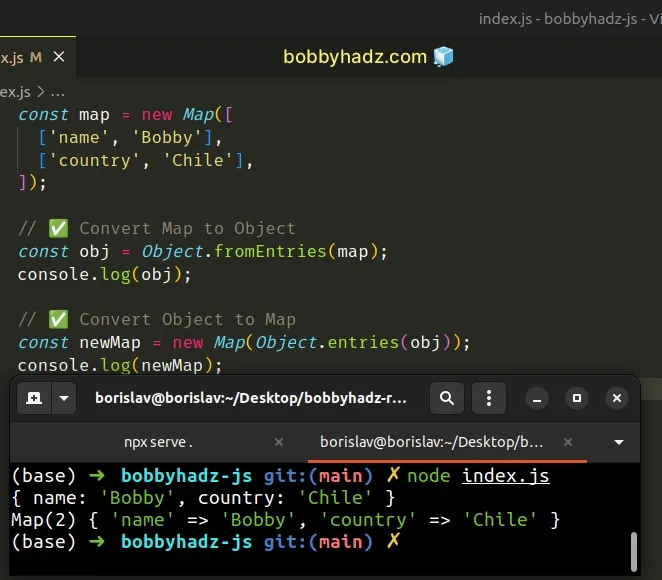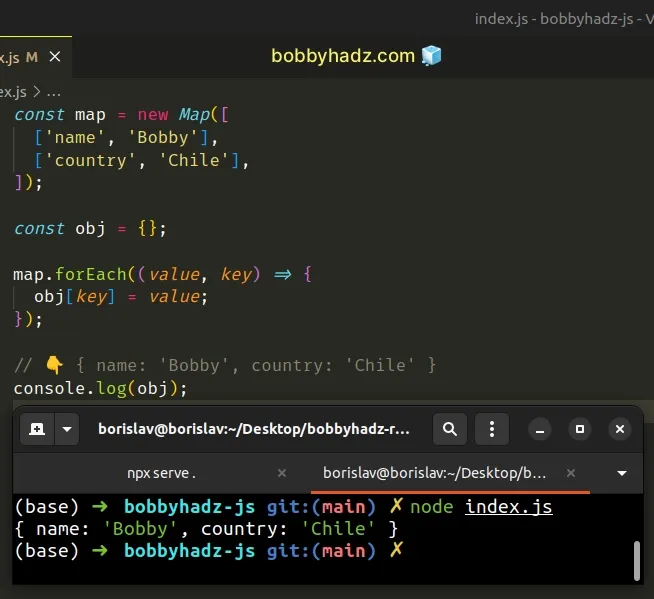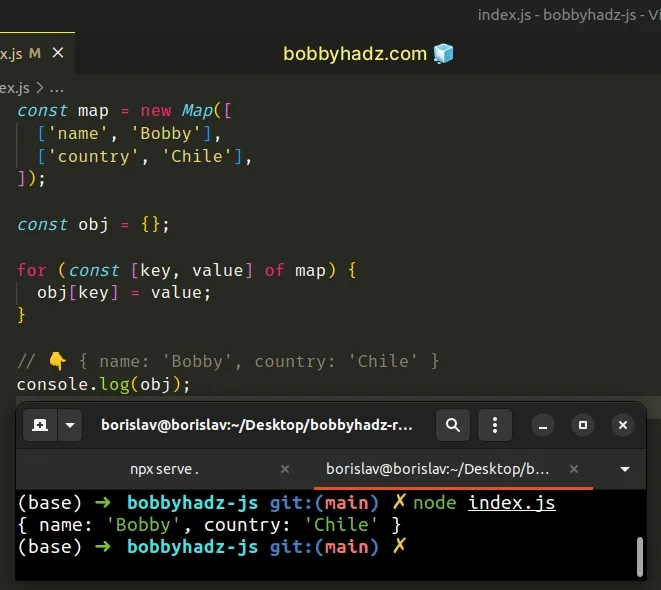Convert a Map to an Object in JavaScript
Last updated: Mar 4, 2024
Reading time·2 min

# Convert a Map to an Object in JavaScript
To convert a Map to an object, call the Object.fromEntries() method
passing it the Map as a parameter.
The Object.fromEntries method takes an iterable, such as a Map, and
returns an object containing the key-value pairs of the iterable.
const map = new Map([ ['name', 'Bobby'], ['country', 'Chile'], ]); // ✅ Convert Map to Object const obj = Object.fromEntries(map); console.log(obj); // 👉️ {name: 'Bobby', country: 'Chile'} // ✅ Convert Object to Map const newMap = new Map(Object.entries(obj)); console.log(newMap); // 👉️ {'name' => 'Bobby', 'country' => 'Chile'}

The
Object.fromEntries()
method takes an array of key-value pairs or a Map object and converts the
value to an object
Here's an example of using the Object.fromEntries() method with an array of
key-value pairs instead.
const obj = Object.fromEntries([ ['name', 'Bobby'], ['country', 'Chile'], ]); console.log(obj); // 👉️ {name: 'Bobby', country: 'Chile'}
The Object.fromEntries() method takes a two-dimensional array of key-value
pairs and converts it to an object in the same way it handles a Map.
# Convert a Map to an Object using Map.forEach()
This is a three-step process:
- Declare a new variable and initialize it to an empty object.
- Use the
Map.forEach()method to iterate over theMap. - Assign each key-value pair to the new object.
const map = new Map([ ['name', 'Bobby'], ['country', 'Chile'], ]); const obj = {}; map.forEach((value, key) => { obj[key] = value; }); // 👇️ { name: 'Bobby', country: 'Chile' } console.log(obj);

The function we passed to the Map.forEach()
method gets called for each key-value pair of the Map and gets passed the
following parameters:
value- the value of the iterationkey- the key of the iterationmap- theMapobject that's being iterated
On each iteration, we assign the current key-value pair to the new object.
# Convert a Map to an Object using for...of
This is a three-step process:
- Declare a new variable and initialize it to an empty object.
- Use the
for...ofloop to iterate over theMap. - Assign each key-value pair to the new object.
const map = new Map([ ['name', 'Bobby'], ['country', 'Chile'], ]); const obj = {}; for (const [key, value] of map) { obj[key] = value; } // 👇️ { name: 'Bobby', country: 'Chile' } console.log(obj);

The for...of statement is
used to loop over iterable objects like arrays, strings, Map, Set and
NodeList objects and generators.
On each iteration, we assign the current key-value pair to the new object.
After the last iteration, all key-value pairs of the Map are stored in the
object.
# Additional Resources
You can learn more about the related topics by checking out the following tutorials:

